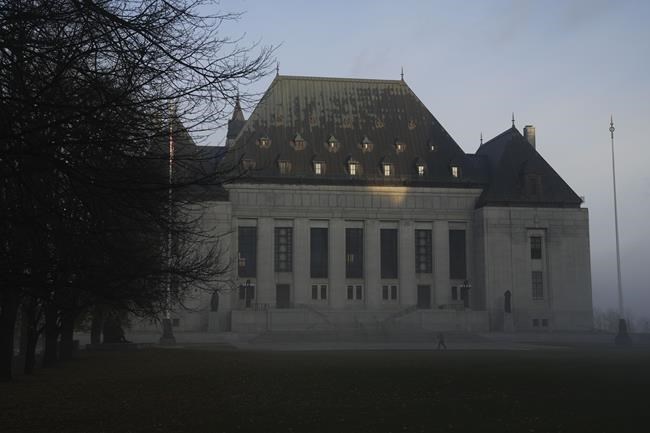
The Supreme Court of Canada is upholding a rule that requires members of a Yukon First Nation to live in its community should they want to serve on its council.The Supreme Court of Canada building is shrouded in fog in Ottawa, on Friday, Nov 4, 2022. THE CANADIAN PRESS/Sean Kilpatrick
Republished March 28, 2024 - 7:47 AM
Original Publication Date March 28, 2024 - 6:31 AM
OTTAWA - The Supreme Court of Canada is upholding a rule that requires members of a Yukon First Nation to live in its community should they want to serve on its council.
Cindy Dickson had been fighting in the courts to have that requirement declared unconstitutional because it means council members must move back to the community within 14 days of winning a seat.
Living about 800 kilometres away from Vuntut Gwitchin First Nation, Dickson was unable to move to Old Crow if elected because her son requires access to medical care not available in the community.
The self-governing First Nation's rule, however, was found by the majority of the court to constitute a specific government activity, and the court ruled that the Charter of Rights and Freedoms applies.
The court found that while the Aboriginal and treaty rights laid out in Section 25 of the Charter apply, so too do the individual rights in Section 15.
But the court ruled that Section 25 prevails.
"Tied to ancient practices of government that connect leadership of the VGFN community to the settlement land, the residency requirement protects Indigenous difference and, pursuant to (Section 25), cannot be abrogated or derogated from by Ms. Dickson’s individual Charter right with which it is in irreconcilable conflict," the majority decision reads.
"Section 25 protects the collective Indigenous interest when the conflict is not hypothetical and cannot be avoided."
Vuntut Gwitchin First Nation, which has its own constitution, had argued the Charter does not apply to the community. And if it were subject to the Charter, the community argued its election rule didn't violate Dickson's individual rights.
The Court disagreed with the First Nation's cross-appeal, saying the Charter does apply to it under Section 32.
This report by The Canadian Press was first published March 28, 2024.
News from © The Canadian Press, 2024